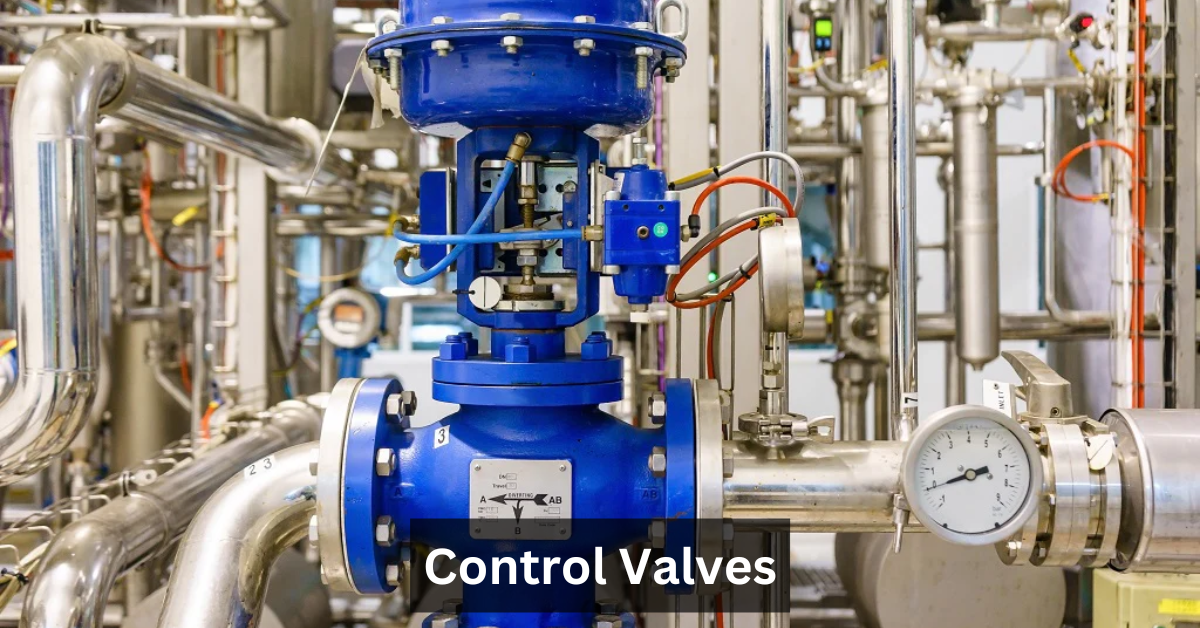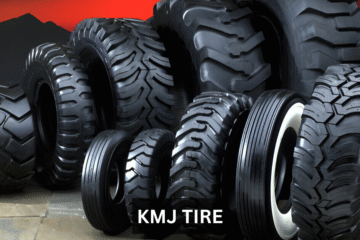Control valves play a vital role in managing fluid systems by precisely regulating flow, pressure, and temperature in pipelines or process setups. By adjusting the valve opening, these devices ensure accurate flow regulation for gases, liquids, or steam. Used in every major industrial sector—from oil and gas to HVAC systems—control valves operate through manual, pneumatic, hydraulic, or electric mechanisms.
Without control valves, industries would struggle with instability, poor efficiency, and safety hazards. These valves serve as intelligent gatekeepers, fine-tuning fluid movement to match real-time demand in industrial process automation. Their function underpins operations in chemical plants, power stations, water treatment facilities, and more. Their precision promotes sustainability, operational consistency, and cost savings.
Control valves manufacturers play a pivotal role in designing, engineering, and supplying valves that meet exacting specifications. They ensure compliance with global certification standards, supply smart valve technology, and develop products integrated with SCADA systems, IoT platforms, and Distributed Control Systems (DCS). Their innovation drives efficiency, reliability, and instrumentation and control capabilities for industries worldwide.
Types of Control Valves and Their Applications
Globe Valves
Among the most commonly used in pressure control solutions, globe valves offer precise throttling. Globe valve manufacturers create valves ideal for operations where flow must be finely adjusted. These valves are known for their linear motion, efficient sealing, and ease of maintenance.
Ball Valves
Ball valve manufacturers produce valves that provide tight shutoff capabilities. Ball valves are suitable for fast-action on/off control, making them indispensable in oil and gas, chemical, and HVAC applications. Their durability and minimal pressure drop make them a preferred choice in high-pressure systems.
Butterfly Valves
Known for their compact design, butterfly valve manufacturers serve industries looking for cost-effective, lightweight options. These valves function well in water treatment, food processing, and pharmaceutical sectors where large valve sizes are required without sacrificing performance.
Diaphragm and Plug Valves
These are primarily used in sterile or corrosive environments. Their design allows for zero contamination, making them ideal for biotechnology and pharmaceutical settings. Custom valve manufacturers often tailor diaphragm valves for ultra-clean environments.
Pneumatic and Hydraulic Control Valves
Pneumatic control valve manufacturers specialize in air-actuated valves used in applications demanding fast response and fail-safe features. In contrast, hydraulic valve manufacturers produce heavy-duty solutions for systems requiring high-force output, often seen in mining or construction machinery.
Applications in Oil & Gas, Water Treatment, HVAC, and Power Plants
Control valves are critical to process control valves in upstream and downstream oil and gas operations, regulating everything from crude flow to steam injection. In water treatment, they ensure smooth flow and pressure for purification and distribution. In power plants, they stabilize thermal and fluid dynamics, while in HVAC, they help control temperature and air quality with precision.
What Do Control Valves Manufacturers Do?
Design and Engineering
Modern valve manufacturing companies invest heavily in valve design and engineering, using CAD tools, simulation software, and flow analysis to innovate. They create valves suited to unique industry needs, meeting pressure ratings, flow requirements, and valve body materials specifications.
Customization for Specific Industries
Not all industries are the same—and neither are their valves. Leading industrial valve manufacturers offer bespoke solutions, be it corrosion-resistant alloys for chemical plants or aseptic valves for food production. This customization for specific industries improves performance, compliance, and safety.
Material Selection and Quality Assurance
Choosing the right valve body materials—such as stainless steel, bronze, or special alloys—is critical to performance and longevity. High pressure valve manufacturers rely on rigorous quality assurance programs, including pressure testing, NDT inspections, and life-cycle assessments to deliver premium products.
Integration with Smart Technologies (IoT, SCADA, DCS)
To keep pace with Industry 4.0, today’s manufacturers build valves with IoT integration, offering smart diagnostics, predictive maintenance, and remote operation via SCADA systems and DCS platforms. These automation valves allow real-time monitoring, improving reliability and efficiency.
Top Global Control Valves Manufacturers in 2025
Emerson Electric Co. (Fisher Valves)
A market leader, Emerson’s Fisher Valves are renowned for precision and durability. Their product lines support high-end automation, especially in the energy and chemical sectors.
Flowserve Corporation
Known for its global footprint and extensive product range, Flowserve is a trusted name for custom-engineered and standard valve solutions across a variety of industries.
Metso (Valmet)
Based in Finland, Metso (now part of Valmet) produces control valves tailored for pulp and paper, mining, and energy. Their strength lies in digital valve control and eco-friendly design.
Samson AG
A German powerhouse, Samson AG provides highly intelligent valve systems with advanced diagnostics, ideal for pharmaceutical, food processing, and chemical applications.
Cameron (Schlumberger)
A leader in oil and gas, Cameron valves are engineered for severe service, offshore environments, and complex high-pressure applications.
Kitz Corporation
A top Japanese manufacturer, Kitz delivers a wide range of flow control valve types, especially stainless steel valves used in critical industries.
Velan Inc.
With its roots in Canada, Velan focuses on high-pressure, nuclear, and cryogenic valves, meeting some of the world’s most rigorous standards.
Crane Co.
A prominent USA-based manufacturer, Crane Co. produces control valves with an emphasis on energy efficiency, durability, and innovative designs.
Forbes Marshall
A standout Indian brand, Forbes Marshall blends local manufacturing expertise with global technology, particularly excelling in steam systems and process automation.
Spirax Sarco
This UK-based brand specializes in steam and thermal energy control systems, offering tailored valve solutions for heating, sterilization, and food production.
Regional Leaders in Control Valve Manufacturing
North America
United States and Canada house global giants like Emerson, Flowserve, and Velan. These firms dominate markets with high-tech solutions and unmatched after-sales services.
Europe
From Germany to the UK, European manufacturers like Samson AG and Spirax Sarco lead in smart valve systems and precision engineering.
Asia (India, China, Japan)
Asia’s industrial growth has spurred innovation among control valve companies in India, China, and Japan, with major brands like Kitz and Forbes Marshall excelling in value and scale.
Middle East
Driven by petrochemical demand, the Middle East is a key region for control valves, with manufacturers and suppliers focusing on severe service and high-pressure applications.
How to Choose the Right Control Valves Manufacturer
Key Factors: Quality, Certifications, Lead Times
Look for manufacturers that hold API, ISO, CE, and ATEX certifications—they ensure compliance with global safety and performance standards. Timely delivery and robust QA practices also reflect credibility.
Customization and Technical Support
Reliable manufacturers offer custom solutions and technical support throughout the lifecycle of the valve—from selection to troubleshooting and upgrades.
After-Sales Services and Global Distribution
Top control valve suppliers maintain strong global distribution networks and responsive after-sales support, ensuring uptime and efficiency.
Comparing Price vs. Performance
Don’t just look for low prices. Consider the valve’s performance, lifespan, maintenance cost, and service accessibility. Investing in best control valve brands often pays off long-term.
Smart Valve Technology: The Future of Control Valve Manufacturing
Industry 4.0 and Control Valves
Modern valves are more than mechanical devices—they’re intelligent endpoints in industrial process automation, collecting and transmitting real-time data.
Predictive Maintenance and Remote Monitoring
Valves equipped with smart diagnostics and IoT integration allow remote monitoring and predictive maintenance, minimizing downtime and improving safety.
Digital Positioners and Valve Diagnostics
Positioners and actuators now come with digital interfaces, offering granular control and operational analytics that enhance productivity and reduce manual intervention.
Trends in Smart Materials and Eco-Design
Manufacturers are turning to smart materials, recyclable alloys, and sustainable coatings to meet environmental standards and deliver eco-friendly valve solutions.
Certifications and Standards for Industrial Valve Manufacturers
API, ISO, ANSI, CE, and ATEX Certifications
Globally recognized certifications verify compliance in safety, quality, and performance. The API (American Petroleum Institute) standard is crucial for the oil industry.
Compliance with Global Industrial Requirements
Whether operating in South Korea, Germany, or India, manufacturers must meet the industrial norms of each region, reflecting their authoritativeness and trustworthiness.
Why Certifications Matter
Certified manufacturers demonstrate expertise, reliability, and a commitment to safe and sustainable operations. For buyers, it’s a sign of credibility and reduced risk.
Challenges Faced by Control Valve Manufacturers Today
Supply Chain Issues
Global shortages and logistics disruptions have created hurdles in material sourcing and delivery timelines.
Rising Material Costs
Raw material price hikes, especially in steel and alloy markets, impact pricing strategies and production scalability.
Digital Transformation Pressure
Keeping up with automation and IoT innovations requires ongoing R&D investment, straining smaller players.
Environmental and Safety Regulations
Tighter regulations push manufacturers to innovate with green materials, sustainable production, and safer designs.
Conclusion
Control valves manufacturers form the backbone of industrial automation. They develop valves that power industries forward with intelligence, safety, and sustainability.
Selecting the right partner means choosing performance, compliance, innovation, and long-term service support.
With smart technology, IoT-enabled valves, and a drive toward green design, the future belongs to forward-thinking, certified, and trusted control valve manufacturers.
Frequently Asked Questions
Who are the top control valves manufacturers in the world?
Emerson, Flowserve, Metso (Valmet), Samson AG, Cameron, and Kitz lead globally.
What industries use control valves the most?
Oil & gas, water treatment, power generation, pharmaceuticals, and chemical processing.
How do I choose between valve types?
Consider fluid type, pressure requirements, control accuracy, and industry specifications.
What certifications should I look for in a manufacturer?
ISO 9001, API, CE, ATEX, and ANSI standards are most crucial.
Are smart control valves worth the investment?
Yes, they offer real-time monitoring, predictive maintenance, and reduce operational costs.
Stay in touch to get more updates & alerts on Erome! Thank you



